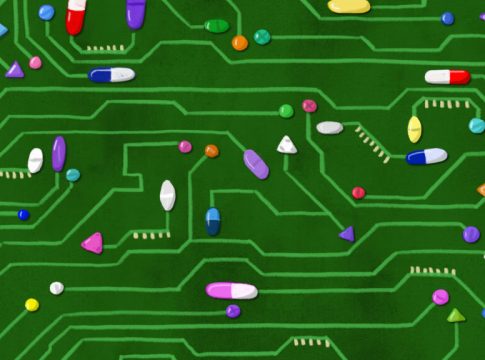AI Revolutionizing Drug Discovery: Insights from Deep Genomics’ Founder
In a world where artificial intelligence (AI) continually transforms industries, the realm of drug discovery stands on the brink of a significant breakthrough. According to Deep Genomics’ founder, the potential of AI to enhance pharmaceutical development and revolutionize how we approach medical research is, quite literally, beyond what many expect.
The AI Advantage
Traditionally, drug discovery has been a long-winded and expensive endeavor, often taking over a decade and costing billions of dollars to bring a single drug to market. Deep Genomics, a pioneer in leveraging AI for medicinal chemistry, is redefining this narrative. By utilizing advanced machine learning algorithms, the company can analyze biological data at an unprecedented scale and precision.
These AI models excel in identifying patterns and predicting how molecules will interact within the human body, which drastically reduces the time scientists spend analyzing potential drug candidates. The founder posits that when applied correctly, AI will help in pinpointing viable therapies with a much higher success rate before they even enter clinical trials.
Understanding the Tech
At the heart of this transformation lies deep learning, a subset of machine learning that employs neural networks with multiple layers to interpret vast datasets. In drug discovery, this means AI can sift through genomic data to forecast how specific drugs will work—or fail—against various diseases, including complex ones like cancer and neurodegenerative disorders.
Natural language processing (NLP) also plays a significant role. AI systems can read and digest thousands of scientific papers or clinical trial results, quickly extracting relevant information that informs research directions. This ability to integrate both qualitative and quantitative data markers sets AI-driven drug discovery apart from traditional methods.
Implications for Business and Society
As companies like Deep Genomics push the boundaries of what’s possible with AI, the implications stretch far beyond improved drug efficacy. Faster and more accurate drug development can lead to lower healthcare costs, expedited access to new treatments, and an overall enhancement of public health outcomes.
For businesses, the competitive landscape in biotech and pharmaceuticals is rapidly shifting. Companies that integrate AI solutions stand to gain a significant first-mover advantage, enabling them to bring innovative therapies to market quicker than traditional practices would allow.
Future Considerations
While the promise is tremendous, it’s essential to maintain a critical perspective. The integration of AI in drug discovery raises questions about data privacy, algorithmic bias, and the overall reliability of AI predictions. Ensuring that these systems are transparent and ethical will be critical as the technology matures.
Moreover, collaboration between tech companies, researchers, and regulatory bodies will be pivotal in smoothing the path for AI applications in healthcare. By leaning on collective expertise, the industry can overcome hurdles and unlock the full potential of AI.
In conclusion, as we navigate this exciting chapter in drug discovery, the optimism expressed by leaders in the AI space is backed by tangible advancements. If AI continues on its current trajectory, it will not just meet but exceed expectations, ultimately reshaping medical paradigms for the better. The future certainly looks promising for patients, practitioners, and innovators alike.

Writes about personal finance, side hustles, gadgets, and tech innovation.
Bio: Priya specializes in making complex financial and tech topics easy to digest, with experience in fintech and consumer reviews.

